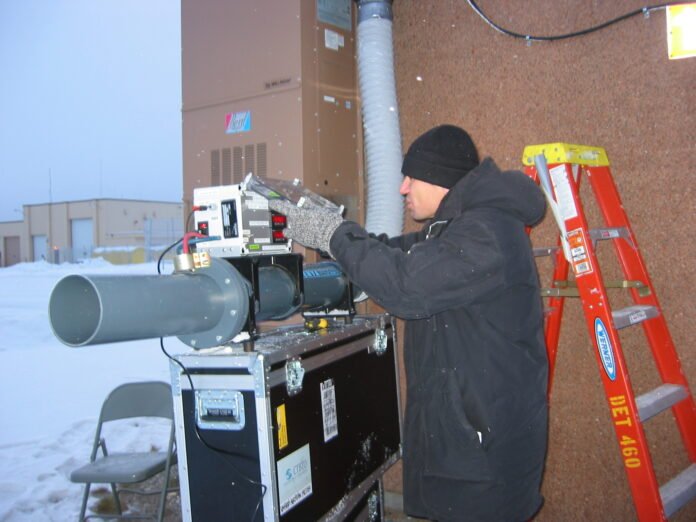Last Updated on March 2, 2025 by Bisma Sehar
In today’s fast-paced industrial landscape, precision is not a luxury—it’s a necessity. From oil and gas operations to water treatment facilities, accurate flow measurement underpins productivity, profitability, and regulatory compliance. When processes rely on the efficient and accurate movement of liquids or gases, even minor inaccuracies can lead to significant losses in efficiency and revenue. So, how does flow measurement accuracy drive productivity, and why is it critical for industries aiming to stay competitive?
Let’s dive into how precise flow measurement impacts various sectors and how leveraging advanced technologies can enhance operational efficiency.
Table of Contents
What Is Flow Measurement Accuracy?
At its core, flow measurement accuracy refers to the degree to which a flow meter can measure the actual flow rate of a fluid (liquid or gas) with minimal error. It’s typically expressed as a percentage error margin compared to the true flow rate. High accuracy ensures consistency, repeatability, and reliability—factors that are essential for process optimization.
Factors influencing flow measurement accuracy include:
- Calibration: Proper and regular calibration keeps equipment performing at peak accuracy.
- Environmental Conditions: Variables such as pressure, temperature, and viscosity can affect performance.
- Technology: Advanced flow meters like Coriolis, ultrasonic, or electromagnetic models offer superior accuracy compared to older mechanical systems.
The Impact of Flow Measurement Accuracy Across Industries
Flow measurement accuracy plays a critical role in several industries, ensuring that operations run smoothly while minimizing waste and maximizing output. Here are a few examples:
Oil and Gas
Accurate flow measurement is essential in oil and gas operations, particularly during custody transfer, where even a small error can lead to substantial financial losses. Precision ensures:
- Proper resource allocation.
- Prevention of disputes between parties.
- Optimized refining and transportation processes.
Water and Wastewater Management
In water management, flow measurement accuracy ensures that:
- Resources are distributed efficiently to reduce waste.
- Leak detection systems function effectively.
- Regulatory requirements for reporting are met without discrepancies.
Pharmaceutical and Food Production
In these highly regulated sectors, flow measurement accuracy ensures product consistency and quality. Whether it’s precise ingredient mixing or maintaining consistent production rates, accuracy minimizes the risk of defects and recalls.
Power Generation
Power plants depend on accurate flow data to regulate cooling systems and optimize energy efficiency. Any deviation in flow measurements can lead to overheating, equipment damage, or decreased power output.
How Accurate Flow Measurement Drives Productivity
1. Reducing Downtime
Accurate flow measurement reduces system malfunctions caused by incorrect readings. For example, if a cooling system in a manufacturing plant fails to maintain consistent flow rates, it can lead to overheating and shutdowns. Reliable flow meters prevent such issues, ensuring uninterrupted operations.
2. Optimizing Resource Allocation
With precise flow data, industries can allocate resources more effectively. For instance, irrigation systems with accurate flow meters distribute water evenly, reducing waste and ensuring crops receive the necessary hydration.
3. Enhancing Energy Efficiency
In industrial systems, energy consumption is often tied to fluid dynamics. Accurate flow measurements allow operators to fine-tune processes, reducing energy waste and lowering costs.
4. Improving Process Automation
Automated systems rely on accurate input data to function correctly. High-accuracy flow meters ensure that automated responses are precise, reducing the need for manual interventions and minimizing errors.
5. Boosting Regulatory Compliance
Industries such as water treatment and oil refining are subject to strict regulatory standards. Accurate flow measurements ensure compliance by providing reliable data for audits and reporting.
Technologies Enhancing Flow Measurement Accuracy
Technological advancements have significantly improved the accuracy and reliability of flow measurement systems. Some notable innovations include:
1. Smart Flow Meters
Smart meters equipped with sensors and IoT connectivity provide real-time data monitoring and predictive maintenance capabilities. This helps industries quickly identify anomalies and reduce downtime.
2. Non-Invasive Measurement
Ultrasonic and clamp-on flow meters allow for accurate flow measurement without altering the pipeline structure. These systems are ideal for retrofitting or measuring corrosive fluids.
3. Advanced Data Analytics
Machine learning algorithms can analyze flow data patterns to detect irregularities and optimize performance, ensuring consistent accuracy over time.
Real-World Benefits of Accurate Flow Measurement
Case Study: Oil and Gas Custody Transfer
Consider a natural gas pipeline transferring one million cubic feet of gas daily. A 0.5% error in flow measurement could result in significant financial losses during custody transfer. By implementing advanced ultrasonic flow meters and maintaining regular calibration, one company reported:
- A 15% reduction in disputes over transfer volumes.
- Streamlined operations, boosting productivity by 20%.
- Greater trust among stakeholders, enhancing long-term partnerships.
Case Study: Water Treatment Efficiency
A municipality aiming to reduce water waste implemented highly accurate electromagnetic flow meters. The result was:
- A 25% decrease in unaccounted-for water losses.
- Compliance with environmental standards.
- Significant cost savings from reduced water treatment expenses.
Factors That Influence Flow Measurement Accuracy
Achieving maximum flow measurement accuracy requires careful attention to multiple factors:
Choosing the Right Flow Meter
- Select a meter that suits the fluid type, flow conditions, and required accuracy.
Proper Installation
- Avoid installing flow meters near bends, valves, or pumps that create turbulence and affect readings.
Regular Maintenance and Calibration
- Schedule regular calibration and maintenance to ensure consistent performance over time.
Adapting to Environmental Variables
- Choose flow meters designed to perform accurately under specific temperature, pressure, and viscosity conditions.
Why Accurate Flow Measurement Matters
Investing in accurate flow measurement systems provides numerous benefits, including:
- Financial Gains: Reduced waste and disputes translate to significant cost savings.
- Operational Efficiency: Consistent and accurate data allows for optimized processes and better decision-making.
- Customer Trust: Industries that deliver accurate billing based on flow data, such as utilities, build stronger customer relationships.
- Sustainability: Precise flow measurements reduce resource waste, supporting environmental initiatives and sustainability goals.
Conclusion
Accurate flow measurement is more than a technical requirement—it’s a strategic advantage. By reducing waste, optimizing efficiency, and enhancing regulatory compliance, industries can unlock new levels of productivity.
Apart from that, if you want to know about Unleashing the Power of the 2022 Kia Stinger GT2: A Comprehensive Review then please visit our Technology Category.



























